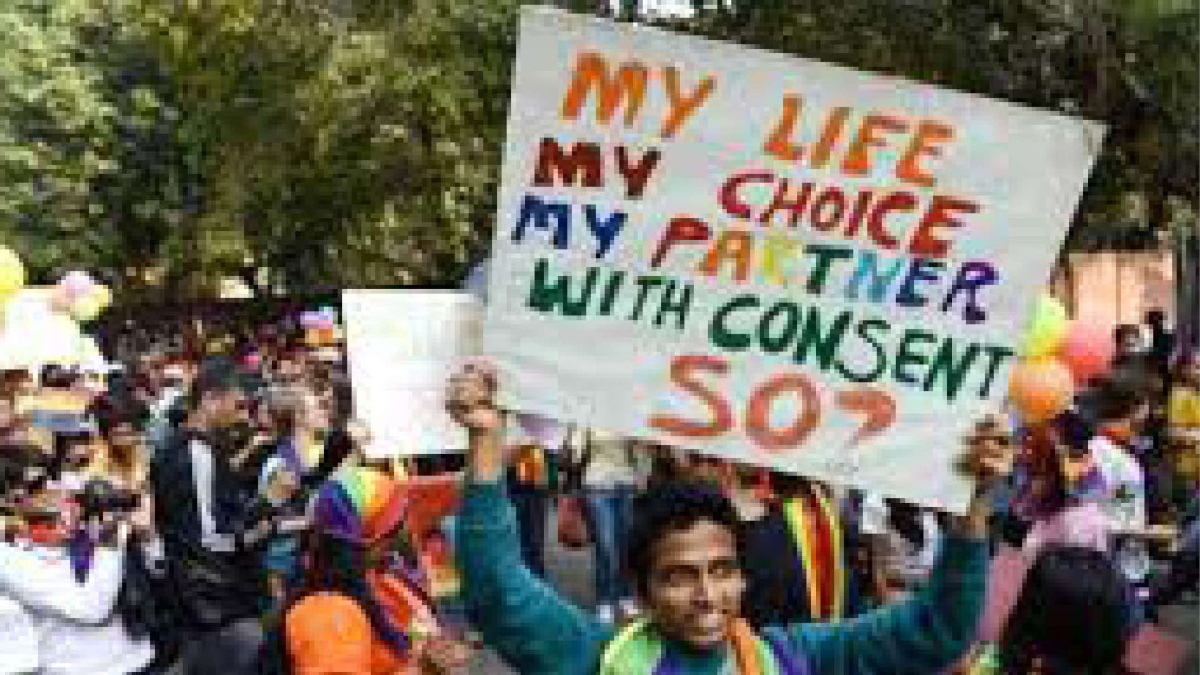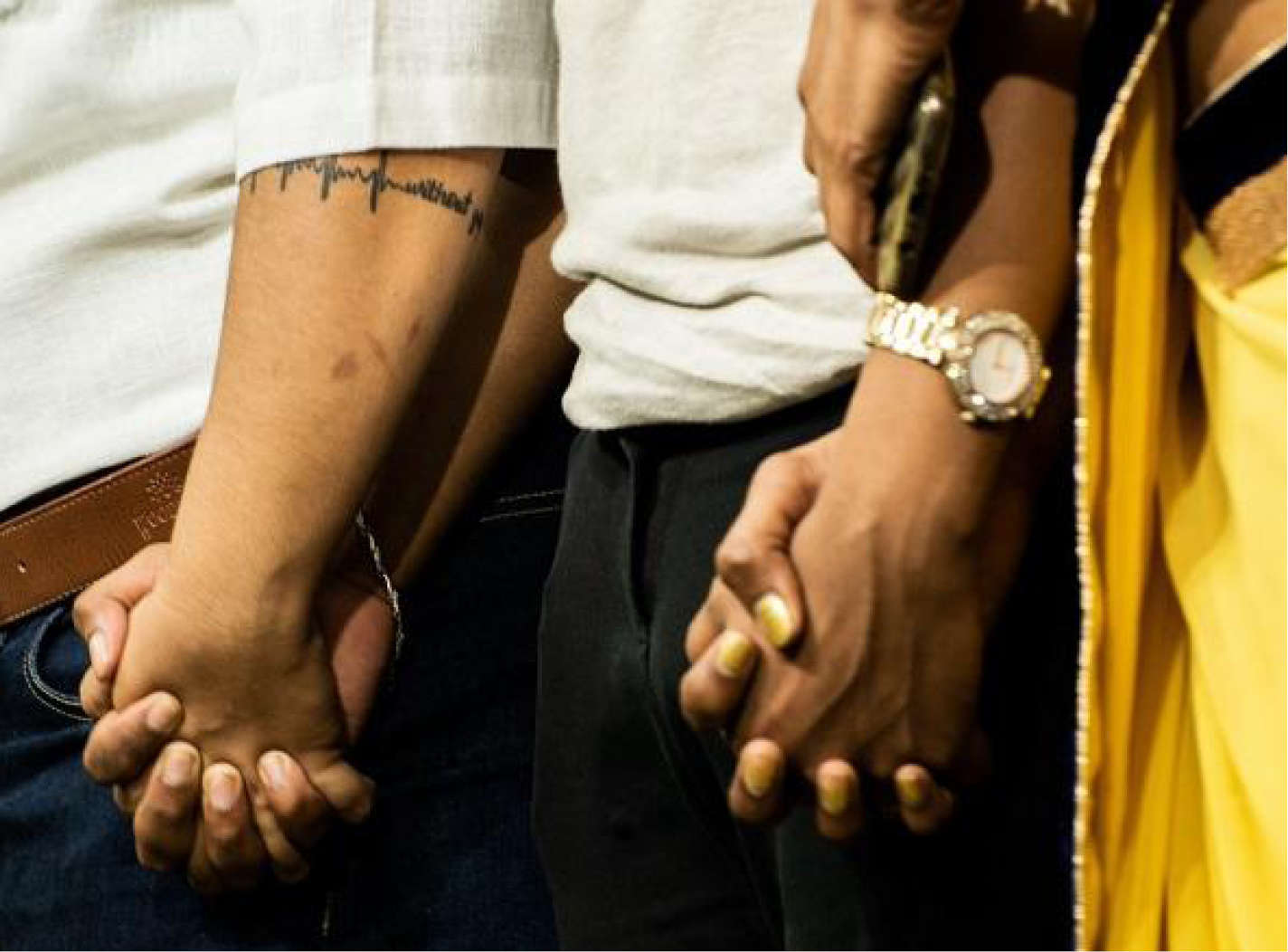
“Equality means more than just passing laws. The struggle is really won in the hearts and minds of the community, where it really counts”.
—Barbara Gittings
The LGBTQ community, that is, lesbians, gays, bisexuals, transgenders, queer and more are evidently and civilly an important section of our society and no more extremist or conservative political influencers can keep blindfolds on. Across the globe, every country has more than 4-5% of their population who desires to be treated and given all the rights, given to a heterosexual couple or individual. In India, from the colonial-era, under the British Raj homophobia was introduced and distorted the foundation of gender equality and justice. Where in India the community is granted with few rights after seventy-one years of independence, many countries still uphold it in the column of criminal offences, and are punished and prosecuted. No doubts, the rights of the community were ignored and unseen earlier even after the establishment of human rights organisations and institutions in 19th century. They were also been identified as refugees in many countries, as when their own country tries to prosecute them, they were eventually timorous and fiddle footed. When the world talks about the equality and justice irrespective of genders(sex), a whole lot of community was shunned and snubbed. With the course of time, many activist, lawyers and leaders of community has step forward and protested for their Rights, dignity and an equal status in the society as others. Where in countries like America, Canada, Netherlands, UK, Spain, etc, are some gay-friendly countries and countries like India, South Africa, Thai countries are still protesting for all the civil and legal rights and in some counties especially the Islamic ones, like Pakistan, Afghanistan, Saudi Arab etc, list it under criminal offences and same-sex activities are strongly condemned and are punished even with death and life imprisonment. Talking specifically about India, the legal system still has not given homosexuals all the legal rights same as a heterosexual.
SUPREME COURT 2018 VERDICT ON SECTION 377
On September 6, 2018 Supreme Court says, “history owes apology to LGBT community”. The supreme Court of India partially struck down colonial era rule, in the landmark case of Navtej Singh Johar & Ors v. UOI decriminalising all consensual sec among adults, including homosexuals. This case overturned a previous ruling (Suresh Kumar Koushal v. Naz Foundation). The court determined the constitutional validity of Section 377 of the Indian Penal Code. Section 377 of the Indian Penal Code is a section of IPC introduced in 1861 during the British Rule in India, it makes sexual activities “against the order of nature” illegal. It was upheld by the Supreme Court that the application of Sexual 377 to consensual homosexual sex between adults was unconstitutional, “irrational, indefensible and manifestly arbitrary”, but that Section 377 remains in force relating to sex with minors, non-consensual sexual acts, and bestiality. On 24 August 2017, the Supreme Court upheld the right to privacy as a fundamental right under the Constitution in the landmark puttaswamy judgement. The Court also called for equality and condemned discrimination, stated that the protection of sexual orientation lies at the core of the fundamental rights and that the rights of the LGBT population are real and founded on constitutional doctrine. This judgement was believed to imply the unconstitutionality of section 377. The judgment was given by a five judges bench comprising the then Chief Justice of India Dipak Misra, Justices R. F. Nariman, D. Y. Chandrachud, A. M. Khanwilkar and Indu Malhotra.
377. Unnatural offences: Whoever voluntarily has carnal intercourse against the order of nature with any man, woman or animal, shall be punished with imprisonment for life, or with imprisonment of either description for a term which may extend to ten years, and shall also be liable to fine.
Explanation: Penetration is sufficient to constitute the carnal intercourse necessary to the offence described in this section.
CURRENT LGBT RIGHTS AND LAWS IN INDIA
Sex as it occurs in Article 15, is not merely restricted to the biological attributes of an individual, but also includes their “sexual identity and character”.
— Supreme Court of India
In India, with the passage of time many protests occurred by the LGBT community for their rights and in which the judiciary and parliament has been active and effective. After the 2018 verdict, the Transgender Persons (Protection of Rights) Act, 2019 was adopted that bans unfair discrimination against transgender people in educational establishment and services, employment, healthcare services, access to the “use of any goods, accommodation, service, facility, benefit, privilege or opportunity dedicated to the use of the general public or customarily available to the public”, the right to movement, the right to “reside, purchase, rent or otherwise occupy any property”, the opportunity to stand for or hold public or private office, and in government or private establishments.
Article 15 of the Indian Constitution was stated as a major statement, as it states that:
15. Prohibition of discrimination on grounds of religion, race, caste, sex or place of birth
(1) The State shall not discriminate against any citizen on grounds only of religion, race, caste, sex, place of birth or any of them
(2) No citizen shall, on grounds only of religion, race, caste, sex, place of birth or any of them, be subject to any disability, liability, restriction or condition.
To be Noted: Despite these constitutional interpretations, no explicit law has been enacted to ban discrimination on the basis of sexual orientation. Concerning employment, Article 15 only extends to discrimination from the state or government bodies
Discrimination, bullying and ragging targeted at a student on the ground of their sexual orientation or gender identity is prohibited under the UGC Regulation on Curbing the Menace of Ragging in Higher Educational Institutions (Third Amendment), 2016.
TRANSGENDER RIGHTS IN INDIA
India has traditionally recognised a third gender population, considered by society as neither male or female. Such individuals are known as Hijras. On 15 April 2014, the Supreme Court of India declared transgender people a socially and economically suppressed class entitled to reservations in education and jobs, and also directed union and state governments to frame welfare schemes for them. The Court ruled that transgender people have a fundamental constitutional right to change their gender without any sort of surgery, and called on the Union Government to ensure equal treatment for transgender people. The Court also ruled that the Indian Constitution mandates the recognition of a third gender on official documents, and that Article 15 bans discrimination based on gender identity.
The Transgender Persons (Protection of Rights) Bill, 2016, which was initially introduced to Parliament in August 2016, was re-introduced to Parliament in late 2017. Some transgender activists have opposed the bill because it does not address issues such as marriage, adoption and divorce for transgender people.
HISTORICAL EVIDENCES THROUGH THE HINDU SCRIPTURES
Hinduism has always acknowledged transgenders from ancient times, and marked as a symbol of positivity. They were respected and even feared by their anger. Transgenders had a huge significance from the time of Mahabharata, where the famous transgender Shikhandi is known, she was born as a female but identified as a male and later married a woman. The Naradasmrti and the Sushruta Samhita, two important scriptures from ancient India relating to dharma and medicine, respectively, declare homosexuality to be unchangeable and forbid homosexuals from marrying a partner of the opposite sex. The Kama Sutra, a Sanskrit text on human sexual behaviour, uses the term tritiya-prakriti to define men with homosexual desires and describes their practices in great detail.
MARRIAGE AND ADOPTION RIGHTS TO THE LGBT COMMUNITY
We all say that parents are equivalent to god and no one could be empathetic, supportive, lovable than a parent, and a parent’s love towards its child is never-ending and undemanding, so the question arises that Can a Homosexual or a transgender mother be any less motherly or affectionate? There is an ever increasing and also a present rate of infertile couples, but still India’s adoption rate is so abysmally low as there is also an accelerating rate of orphans in India. According to United Nations Children’s Fund (UNICEF), India has 29.6 million orphaned and abandoned children in 2018 and by 2020 the number has increased to 31 million. So, it could mean that a child can be grown all by his/her own, away from a home, parents, guardians, love, care, protection rather than giving them to a homosexual couple. There needs to be a huge readjustment in the government’s focus on child development because currently millions of children are being wasted and denied a future of opportunities to realise themselves. The government’s Central Adoption Resource Authority (CARA) adoption statistics show that in 2010 there were 5,693 in-country adoptions, while in 2017-2018, there were only 3,276 in-country adoptions. These are disgraceful figures for a population as mammoth as India’s. And currently, there are approximately only 20,000 parents in line waiting to adopt, compared to the 27.5 million couples who are actively trying to conceive but are experiencing infertility, according to the Indian Society of Assisted Reproduction. In any nation children are the future capital, an asset, who need to be nurtured to protect its demographic, economic conditions as by 2050 the population explosion will destroy and distort the entire community and not one. Its high time to discriminate and differentiate between genders, race, colour, ethnicity, and should be unified for betterment.

CONCLUSION
The concluding lines will be as simple as ever, as now the need of hour is to halt gender discrimination, to reduce the gender gap, to introduce equality and justice for every living human being in India. LGBT community and their rights had been supressed from a long time, they had been differentiated from the heterosexual couple, denied of equal rights, and now the judgment should be in the favour of equality and pride and not just a gender.
Hinduism has always acknowledged transgenders from ancient times, and marked as a symbol of positivity. They were respected and even feared by their anger. Transgenders had a huge significance from the time of the Mahabharata, where the famous transgender Shikhandi was born as a female but identified as a male and later married a woman. The Naradasmrti and the Sushruta Samhita, two important scriptures from ancient India relating to dharma and medicine, respectively, declare homosexuality to be unchangeable and forbid homosexuals from marrying a partner of the opposite sex.